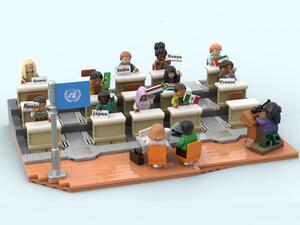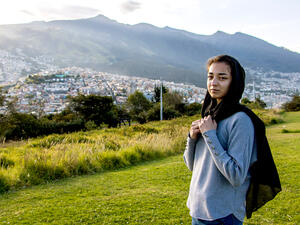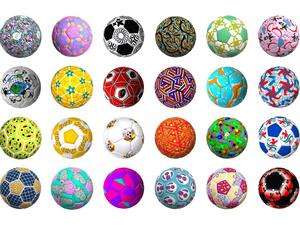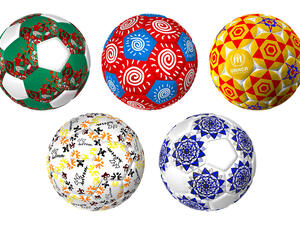Refugees dance away boredom and grim memories in Chad
Refugees dance away boredom and grim memories in Chad

Chadian dancer Taigue teaching dancing classes to young refugees from CAR in south Chad.
GONDJE REFUGEE CAMP, Chad, 10 September (UNHCR) - Six young refugee girls in flashy white costumes dance slowly in line toward centre stage in time to tam tam drums as Taïgué Ahmed studies their movements, joining in from time to time to instruct.
Taïgué, a 30-year-old Chadian professional dancer, has shown that in refugee situations - where so much attention is given to caloric intakes and distribution campaigns - there's more to life than physical survival. In Gondje Camp at Goré, the main town in south-west Chad, the UN refugee agency is funding a pilot project to give refugees from Central African Republic (CAR) and local Chadians a way to have fun and express themselves, while helping them to grow together as a community.
In 2006 Taïgué, approached UNHCR with the idea of holding a dance session to gauge the interest in a larger programme he was envisioning. The response was overwhelming. At the start of that two-week session, 233 people, young and old, came out and signed up. When he left to organize the project from his dance studio in the Chadian capital of N'Djamena, they grew impatient and held rallies demanding his return.
Chad hosts some 44,000 refugees from CAR - 2,650 arrived this year - in four camps along the southern frontier, all seeking to escape the violence in the north of their country. While many camps have organized football matches, most would concede there isn't a lot for people to do.
"Life in the camp is very boring," explains Mathieu Ngaba, a 30 year-old refugee from CAR, adding that many people, himself included, are left with little to do other than think about what they've lost and left behind. Gondje hosts 12,402 refugees from CAR.
Taïgué has spent his life dancing and teaching others to do the same. His parents initially disapproved of his chosen career and kicked him out of the house, but now that he's come back from performances in Spain, Cameroon, Germany and elsewhere, they've changed their minds.
In 2005, he opened his own dance studio, Company Go, in Chad and has been training young Chadian dancers in traditional and contemporary dances. He finds time to perform when he's not teaching and often incorporates themes into his work, mainly around the ideas of non-violence, peace, women's rights and conflict resolution.
He's quick to point out that dance is an excellent way to unwind, but an even better educational activity. "It's fun and it's relaxing, but dancing's also an excellent way to communicate and learn from a wide variety of people," Taïgué said.
With the pilot project underway for four months, the dance groups are practicing three times a week for their upcoming performances. At this stage, the dance groups manage themselves and Taïgué's visits have become less frequent.
They have their own structure and according to Keita Ishitani, UNHCR's Associate Community Service Officer, their ability to "organize themselves and collaborate with others in order to accomplish their common goals" is a valuable byproduct of the project.
The three groups from the Gondje and Amboko refugee camps as well as the local Chadians from Goré have put on 21 performances so far and many will be attending the 'Dam Sena' (Dance Together) festival/workshop in N'Djamena in October 2007. Professional dancers from as far away as France and Gabon will attend as well as other Chadian dancers, artisans and musicians.
"It's very important that Africa expands its culture of dance," says Taïgué. "Not everyone has the money to go to school to become a lawyer or a doctor. It's important to have people spreading their messages of peace and non-violence through something accessible like dancing."
Melanie Melal, a 17-year-old refugee, initially took the dance programme lightly - it was a way to have some fun and take her mind off the fact that her parents died and her family was left behind in CAR. But now that's she's among the 25 dancers heading to N'Djamena for the Dam Sena festival, she's starting to look at dancing as a potential career.
As Taïgué assesses the project in the last days before the festival, his passion and commitment is unmistakable. "My brothers and sisters in CAR have suffered under war and violence and have lost so much of their culture because of it. I hope some of these people go on to a career in dance - it's possible to do what you love and still make a living."
By Bryn Boyce in Gondje Refugee Camp, Chad









